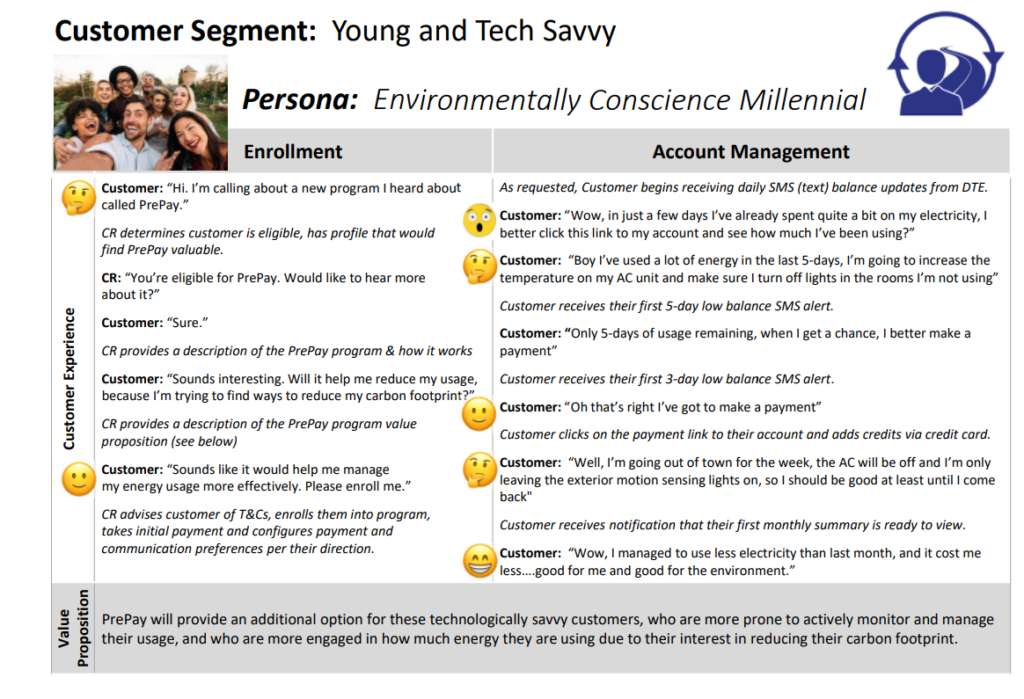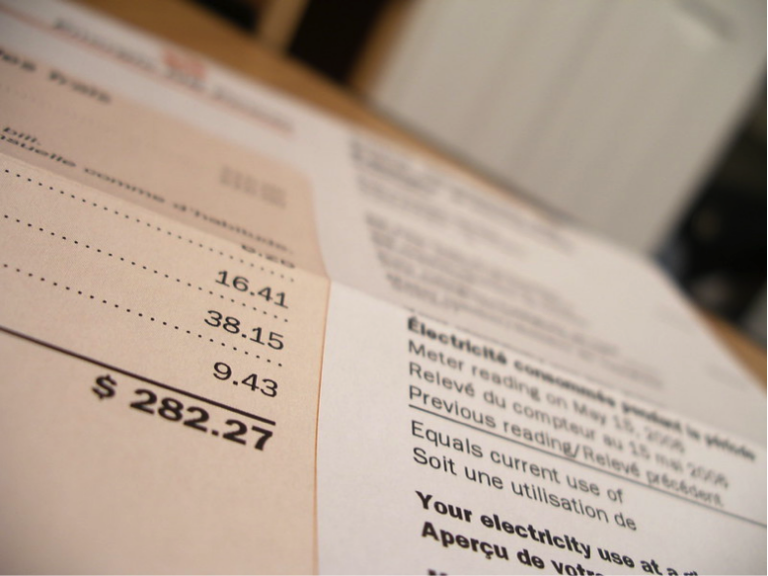DTE wants to sign up customers for a new (voluntary) program in which they would prepay for electricity, and then face near immediate shutoff if the money they put in runs out. Fortunately, an administrative law judge has agreed with testimony filed by CUB and the Michigan Department of Attorney General and recommended that the Michigan Public Service Commission (MPSC) reject this proposed program.
A major warning sign is that to even get this program off the ground, DTE must ask the MPSC to waive several of the most important Billing Rules in Michigan administrative laws—rules that protect consumers. For example, the Billing Rules require a 10-day grace period before a customer who has been notified (through mail or in-person) that his or her power will be shut off for non-payment actually can be disconnected. But with the prepay program, DTE wants to be able to shut a customer’s power off just 24 hours after the customer hits zero balance (following text warnings of low balance at five days, three days and one day before shutoff), so, for DTE’s purposes, the 10-day grace period has to go.
Expert witness 5 Lakes Energy Senior Consultant Rick Bunch testified in the MPSC’s case deciding the fate of the program and struck back against DTE’s ill-advised request (CUB of Michigan and Attorney General Dana Nessel sponsored Bunch’s testimony):
“The Company’s requested waivers and the practices those waivers would allow would expose customers to shutoff risks with much less notice, weaken protections against shutoff when charges are disputed, and leave customers with little time to evaluate billing notices, access funds, and respond. During extreme weather events, customers short on cash might face the necessity of going without other essentials or curtailing their energy use to an extent that compromises their health and safety – a dilemma not faced by post-pay customers who can average unusually high usage spikes out over a full billing period.”
DTE did not invent the idea of a prepay program for Michigan. Consumers Energy has previously done a pilot prepay program called Pay My Way. But that was only a temporary program that the utility did not pursue further, and it at least gave participants a ten-day notice if their funds were running low, which is better than the mere five days proposed by DTE.
DTE has already had this program rejected by the MPSC once already. The company presented it to the Commission in May 2021, and, after urgings from CUB and other groups, the commissioners rejected the plan in a July 2021 order. But they did so “without prejudice,” thus leaving the door open for DTE to try again, which it did when the company reapplied this September.
Incredibly, DTE’s “revised” application retains many of the worst features of their original attempt, including the aforementioned shutoff just 24 hours after a customer’s account hits zero balance. The comments CUB submitted on the original proposal also apply to DTE’s “revised” application:
This timeframe is outright dangerous for customers. 24 hours is an unreasonably short amount of grace period before customers are disconnected from essential services. In no other context that CUB is aware of does state law or Commission practice allow a utility to deny service in such a short timeframe. There is a good reason for the precedent that DTE wants to overturn. Utility service upon which a customer’s life might literally depend, such as a customer with an electric home medical device, should not be cut off with just a day’s warning.
By contrast, DTE has spun its prepay program as a consumer-friendly plan that gives a “simple” method for busy or “tech-savvy” customers to pay their bills, and even reduce their “carbon footprint” in the process.

DTE is selling its PrePay program as a cool, tech-savvy product for youth, but the details of the program beg to differ. Source for image: Testimony filed by DTE expert witness Michael Hatsios
But there is no reason why a “tech-savvy” customer looking for a plan that offers, for example, more sophisticated data options could only find those features in this program. The judge agreed with Bunch’s testimony on that point. “The Company did not provide any reason why the information from the prepay program cannot be provided to all customers,” she said. For example, DTE “argue[s] that real-time information will benefit customers and lead to reduced energy usage. If true, real-time information should be available to all customers.”
Next, DTE’s suggestion that the program will help customers use less energy is misleading because the utility frames this supposed benefit as “good for the environment,” as if the program is promoting energy efficiency. But what’s really happening here is that a customer on the prepay program may cut back on energy use ,not because they are more easily able to “go green,” but because of the escalated threat of short-notice shutoff. That’s not energy efficiency, which Michigan statutes define as “a decrease in customer consumption of electricity or natural gas achieved through measures or programs that target customer behavior, equipment, devices or materials without reducing the quality of energy services” (emphasis added).
“It is not necessarily a bad thing for a customer to turn down their thermostat in winter and turn it up in summer to save energy,” Bunch wrote in the testimony. “My point is that such choices do not serve the objectives of energy waste reduction programs when they reduce the quality of energy services the customer receives. The Commission should take care not to conflate such self rationing or self-deprivation choices with energy waste reduction.”
The administrative law judge agreed with many of CUB’s criticisms. For example, her proposal for decision noted “that the billing rules afford a post-pay customer a period of 21 days to make payment, while the prepay customer must pay immediately upon reaching a zero balance and could be shutoff within one day. This does not evince a benefit to the prepay customer.”
But the administrative law judge’s proposal for decision is not binding on the MPSC. The MPSC could still approve or reject DTE’s prepay program. If you want to express your feelings to the Commission on what they should do, go to the case docket here and click “Submit Comment.”

